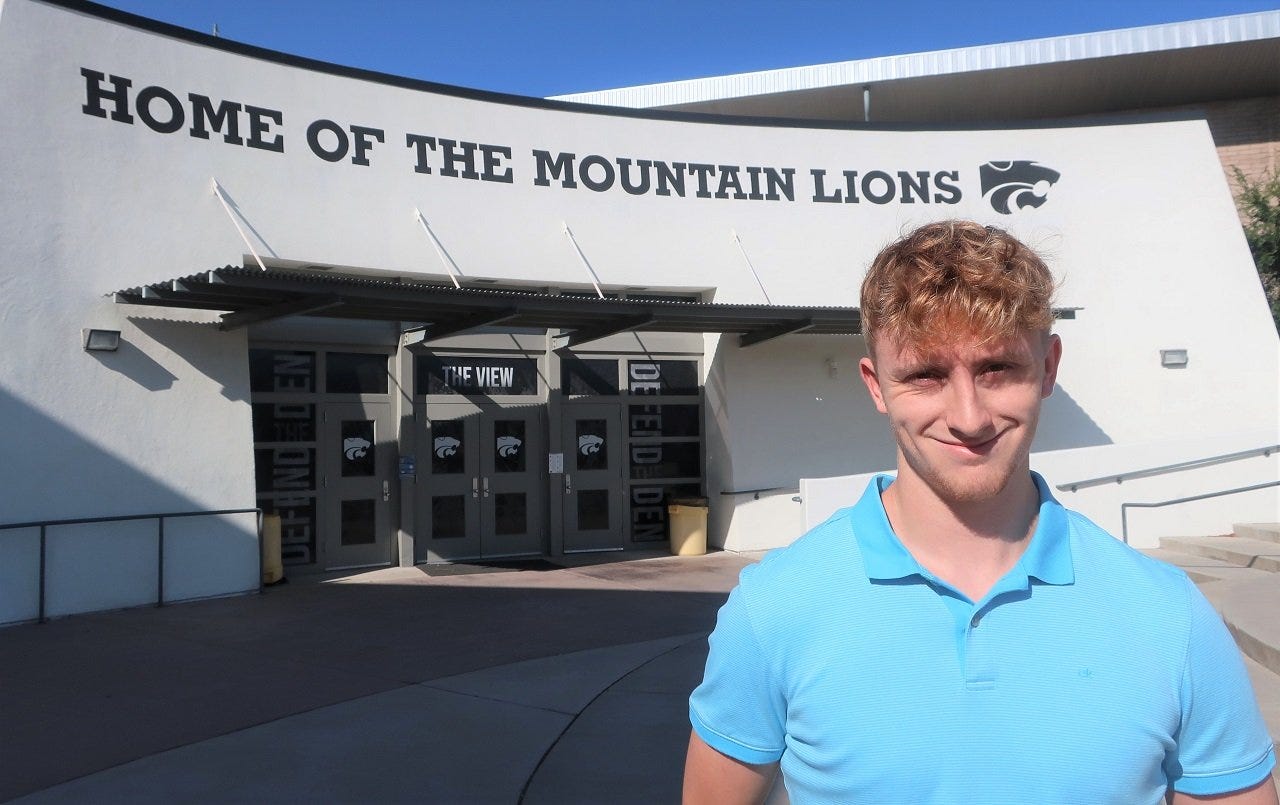🗳️ Local School Board Election Sparks Sign Controversy
🏫 Marana School District Board Member Alleges Sign Tampering 📜 State Constitution's Role in Arizona Court Decisions Key Takeaways: 🗳️ School board elections can involve heated disputes over campai
Based on the 10/07/24 Winn Tucson Show on KVOI-1030AM.
🙊 Notable quotes from the show
Tom Carlson: "Hunter voted to keep schools closed. Kids are still suffering."
Clint Bolick: "Our system was actually designed at celebrating its 50th birthday this year. And it was originally designed by a state legislator named Sandra Day O'Connor."
⏮️ ICYMI: From the Last Show…
🤫 Alleged Cover-Up: Did AZ Officials Try to Hide Voter Registration Crisis?
Based on the 10/02/24 Winn Tucson Show on KVOI-1030AM.
😽 Keepin’ It Simple Summary for Younger Readers
👧🏾✊🏾👦🏾
👋 Hey there! 📻 On this radio show, they talked about two big things: 🏫 School board elections and 👨⚖️ judges in Arizona. One person was upset because someone took his signs about the school board election. 🗳️ Then, a judge explained how he got his job and how people vote to keep judges working. 📜 He also talked about how Arizona has special rules that sometimes give people more rights than the whole country's rules do!
🗝️ Takeaways
🗳️ Local school board elections can involve heated disputes over campaign tactics
⚖️ Arizona uses a merit selection system for appointing judges, followed by retention elections
🏛️ The Arizona State Constitution often provides broader protections than the U.S. Constitution
📊 The Arizona Supreme Court carefully selects which cases to hear based on public importance and legal clarity needed
Jump to the 🦉 Three Sonorans Commentary based on:
📻 What They Discussed
On Monday, October 12, 2024, the radio show "Winn Tucson" hosted by Kathleen Winn aired on 1030 The Voice. The episode featured two main guests:
Tom Carlson, a member of the Marana Unified School District Governing Board since 2011, and
Clint Bolick, an Arizona Supreme Court Justice appointed in 2016.
The show covered topics ranging from local school board election issues to the role of the Arizona Supreme Court in interpreting state laws and constitutional matters.
🏫 School Board Election Controversies
The show's first segment delved into the ongoing issues surrounding the Marana Unified School District school board election. Tom Carlson, a current board member not up for re-election this cycle, discussed the contentious atmosphere surrounding the campaign. He described placing signs criticizing candidate Hunter Holt's voting record on school closures and mask mandates during the COVID-19 pandemic. Carlson reported that many of his signs were removed or damaged, with one tracked to Holt's residence using an air tag.
The situation escalated when Carlson received an injunction against harassment filed by Holt. Carlson expressed concern about the potential impact on his security clearance and professional life. He argued that his signs were a form of protected political speech and that their removal violated his First Amendment rights. The discussion highlighted the intense local politics surrounding school board elections and raised questions about the limits of campaign tactics and free speech in local elections.
⚖️ Arizona Supreme Court and Judicial Retention
The second segment featured an interview with Arizona Supreme Court Justice Clint Bolick. Justice Bolick explained the merit selection process for Arizona judges, designed by former U.S. Supreme Court Justice Sandra Day O'Connor when she was a state legislator. The system aims to minimize politics in judicial appointments by using bipartisan citizen commissions to vet candidates before gubernatorial appointments.
Bolick discussed his background, including his work at the Goldwater Institute and co-founding the Institute for Justice. He emphasized the importance of the Arizona State Constitution in court decisions, noting that it often provides broader protections than the U.S. Constitution. Bolick highlighted a case involving a Phoenix ordinance about customized products for same-sex couples, where the Arizona Supreme Court ruled based on state constitutional protections of free speech and religious liberty.
The justice also touched on the court's role in reviewing election-related cases, particularly in even-numbered years when ballot measures and candidate eligibility issues often arise. He explained that the court typically receives over 1,000 petitions for review annually but only decides 50-60 cases, focusing on matters of public importance or areas where the law needs clarification.
🗳️ Judicial Retention Elections
Justice Bolick also discussed the retention election process for Arizona judges. He noted that this year marks Arizona's 50th anniversary of the merit selection system. Bolick explained that judges must stand for retention elections periodically, with superior court judges facing voters every four years and appeals court and supreme court justice every six years.
He mentioned a recent trend of politicization in these typically routine processes, with particular interest groups now attempting to influence judicial retention elections. This has led to the unusual sight of judges needing to campaign and put up signs to counter negative messaging from these groups. Bolick emphasized that these efforts are not based on the judges' performance or qualifications but on disagreements with their judicial philosophy or specific rulings.
📜 Constitutional Interpretation and State Rights
Throughout the interview, Justice Bolick stressed the importance of state constitutions in protecting individual rights. He highlighted that Arizona's constitution contains 27 provisions in its Declaration of Rights, compared to the ten amendments in the U.S. Bill of Rights. This expanded set of protections allows the Arizona Supreme Court to safeguard certain freedoms even if federal interpretations change.
Bolick used the Brush & Nib case to illustrate how state constitutional protections can provide a backstop against potential changes in federal constitutional interpretation. He expressed pride in the court's ability to protect freedoms under the state constitution, regardless of U.S. Supreme Court rulings on similar issues.
These discussions provided listeners with insights into the local political dynamics of school board elections and the broader constitutional issues handled by the state's highest court, highlighting the complex interplay between local governance, state constitutional law, and the judicial system in Arizona.
If you enjoyed this article, buy us a cup of coffee! We 🤎☕‼️
👯 People Mentioned
Kathleen Winn - Host of "Winn Tucson" radio show
Tom Carlson - Member of Marana Unified School District Governing Board
Hunter Holt - Candidate for Marana school board
Clint Bolick - Arizona Supreme Court Justice
Sandra Day O'Connor - Former U.S. Supreme Court Justice, designed Arizona's judicial merit selection system
Doug Ducey - Former Governor of Arizona who appointed Clint Bolick to the Supreme Court
Catherine King - Another Arizona Supreme Court Justice appointed by Doug Ducey
Robert Brutnell - Former Chief Justice of Arizona Supreme Court, retiring soon








